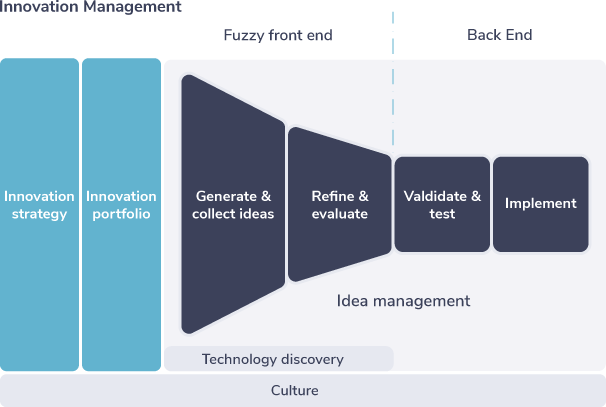Innovation Management
Innovation Management generates innovative ideas and turns them into attractive new products, services, and business models.

Innovation Management
Innovation Management generates innovative ideas and turns them into attractive new products, services, and business models.
Creativity is the basis of Innovation
Today’s business credo mandates more innovations, and those innovations become increasingly complex, multi-dimensional and risky. The development of innovations in the form of new products or services is one of the most demanding management tasks. Therefore, the innovation process requires professional process models and methods that are up to the challenges.
Successful Innovation requires following a structured project decision-making approach to manage risks properly. Applying decades of experience in a multitude of succesfull innovations in the fields of industrial biotechnology, bioplastics and biobased chemicals, Sirius Consultancy International assist clients to assess potential innovation and business development opportunities for new and existing products.

How can we help you turn your ideas into strategic business opportunities?
Challenges
The management of innovations makes high demands on an organization. The challenges are based on the peculiarities of innovation:
Scope: Innovation always brings change. Innovations are often far-reaching changes that can affect the company’s business model and its DNA. What is more, people and organisations often react to changes with great resistance.
Uncertainty: The output is something new, at the beginning of the process one does not know the basic conditions in detail, nor the concrete way and the goal. Dynamics add up to this, since the assumed environment in which one acts can change.
Knowledge intensity: Developments and decisions in the innovation process require extensive knowledge and information. In some cases, it requires knowledge that is not yet available in the company.
Interdisciplinarity: The development and implementation of a new service requires the involvement of almost all corporate divisions. It requires their cooperation and resources and often leads to a change on their side.
Individuality: In comparison to a production process, where each output is the same and can therefore be planned, each output is individual in the innovation process.
Creativity is the basis of Innovation
All of these characteristics and factors make innovation a challenging and complex activity that requires suitable processes and methods. Robert Cooper’s famous Stage-Gate® process has established itself as a valuable risk-management tool in innovation management. It divides an innovation project into individual stages, which are very similar in terms of content and requirements.
In between there are so-called gates, also as milestones, where decisions about the further procedure are made. Based on defined criteria and deliverables, decisions are made at these gates as to whether the project will be continued or not. If the decision is positive, the framework conditions, objectives and thus deliverables are determined for the next stage.

